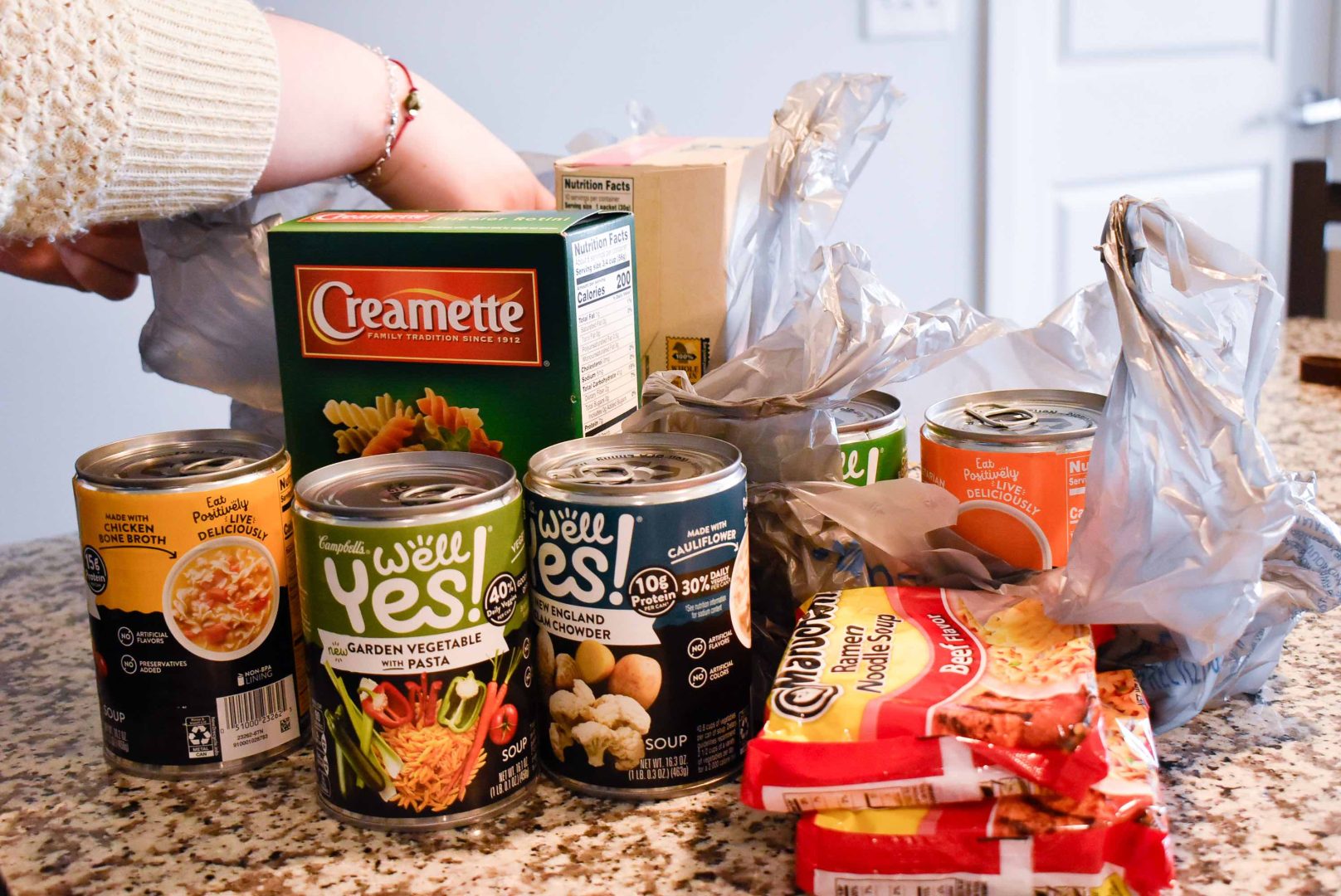The University of Indianapolis Food Pantry is a space where students, staff and faculty can get food in their time of need, according to Executive Administrative and Lead Title IX Investigator Assistant Angie Presnell. It currently operates in the lower level of the University Heights Methodist Church and opened in August of 2021, according to Associate Director of Inclusive Excellence and Retention Strategy Jolanda Bean.
According to Bean, students can sign up to receive food from the pantry through an email sent from Vice President for Student and Campus Affairs and Dean of Students Kory Vitangeli. This email is currently sent out once a month and contains a Google form for people to sign up, Bean said. After checking in, Bean said those attending are given a bag and are able to pick up as much food as they need from two large closets and items stocked include non-perishable items, such as canned vegetables and macaroni and cheese. Bean said fresh bread and gluten-free bread are also bought every week.
“[It’s] non-perishable at the moment, but we are working to look at our resources to see what else we can do and how we can, if we can bring a refrigerator here, how to work with other, the [UIndy] Garden, and how can we get that going in the fall or the summer,” Bean said.
According to Bean, other items such as shampoo, dishwasher soap and toilet paper are occasionally stocked, although the main portion of the pantry is food. Angie Presnell said that the campus community can also donate money as well as food and other items. Bean said the food and items stocked come from donations from faculty, staff and students, and if the pantry runs out of food, the staff of the pantry will also buy food to stock.
“Right now, we will buy the food too, if we run out of food, we would buy food based on our donations,” Bean said. “But a lot of it will come from the campus community. I will be sending out an email, hopefully shortly, with a list of items that people [need], and I’ll put that on a Google form in an email, that’s where people can say, ‘Oh, this is what they need.’”
Bean said that it is part of the university’s plan to establish a permanent location, but is not sure where it will be located. A website is also being developed for the food pantry, she said.
There was previously a virtual food pantry on campus during February in the Spring 2021 Semester, according to Bean. There, members of the food pantry would pack food for participants instead of participants picking which specific food they want. Participants would then pick up their bags of food in Schwitzer, Bean said.
According to Bean, the food pantry was created by the Inclusive Excellence Strategic Leadership Coalition and the Paul Washington Lacey Leadership Institute. Bean said they worked with an existing food pantry that was for mothers and babies in the University Heights Methodist Church.
Presnell said the food pantry was created due to food insecurities around campus and students not having funds available to provide food for themselves. According to Presnell, food insecurities on campus can impact people in multiple ways.
“If they’re hungry, they can’t concentrate,” Presnell said. “If they’re concerned about having food available, it just affects your mental capacity to be able to do homework. Many times if you’re hungry in class, it’s harder to pay attention and it just causes all kinds of problems.”
According to Bean, food pantries are very common in Indiana schools. Bean said food insecurity impacts multiple grade levels, including upperclassmen, graduate students and adult learners. She said that they have other responsibilities, such as paying for books, and because of this they may be missing the food portion of their responsibilities. Bean said she believes it is important to have an open dialogue about the food pantry.
“I think we’re still talking about it and learning from other universities and learning how to work on that,” Bean said. “It’s something that we’re still working with. But, I think the food pantry is a nice start. I think dialogue and conversation and promotion is another start too, but I think really just listening to the students, knowing what they need, and then going from there.”
Students, faculty and staff may donate to the food pantry in Schwitzer 208 or at the food pantry directly on Thursdays, Bean said. According to Bean, the hours that it is open are flexible and it is open to all students, faculty and staff on campus.








